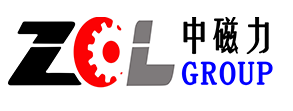## Understanding Large Synchronous Motors for Chemical Plants
Large Synchronous Motors (LSMs) play a vital role in the operations of chemical plants, providing precision control and efficient energy consumption. At their core, these motors convert electrical energy into mechanical energy, driving various processes that are crucial to chemical manufacturing.
The key components of a large synchronous motor include the stator, rotor, exciter, and control system. The stator is the stationary part of the motor, consisting of windings that create a rotating magnetic field when alternating current (AC) is applied. The rotor, on the other hand, is the rotating component that can be either a salient pole or a non-salient pole rotor. The rotor is energized using direct current (DC) supplied by the exciter, which creates a fixed magnetic field that interacts with the magnetic field from the stator.
One of the distinctive features of synchronous motors is that they operate at synchronous speed, meaning the rotor speed matches the frequency of the AC supply. This characteristic is particularly beneficial in chemical processing, where consistent speed is essential for mixing, pumping, or conveying materials, ensuring that quality and efficiency are maintained throughout production.
The advanced technology in large synchronous motors enhances their operational efficiency. Many modern LSMs are equipped with digital control systems that enable real-time monitoring and adjustments, optimizing performance. This capability allows plant operators to fine-tune operations for varying load conditions and improve the reliability of the motor, reducing downtime and maintenance costs. Furthermore, variable frequency drives (VFDs) can be utilized to control the motor speed and torque, making the system adaptable to a wide range of processes and load requirements.
In application scenarios, large synchronous motors are widely used for pumps, compressors, and agitators in chemical plants. For example, in a polymer production facility, LSMs are employed to drive large agitators that mix chemical feedstocks efficiently. Coordinating these motors with advanced control systems can result in significant energy savings and reduced emissions, aligning with sustainability goals in the chemical industry.
In conclusion, large synchronous motors are integral to the efficient and reliable operation of chemical plants. Their advanced technology and precise control mechanisms ensure that manufacturing processes are optimized, promoting not only productivity but also environmental responsibility. For information on sourcing these systems or finding reputable suppliers, feel free to contact us.
